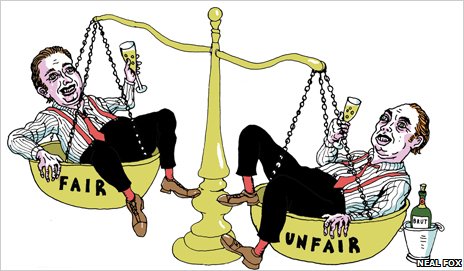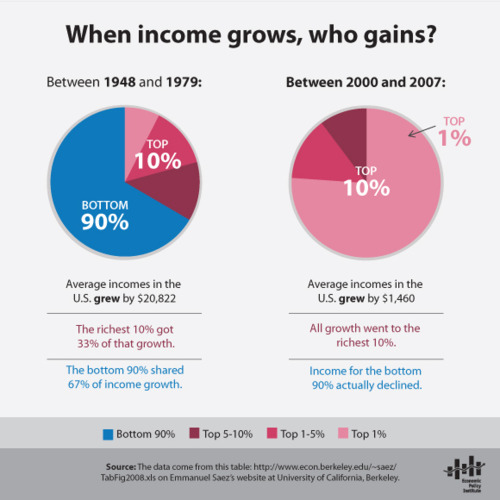Our new friends Amanda Pouchot and Kathryn Minshew talk about why they started prettyyoungprofessional.com – a website dedicated to helping young women (and anyone, really) survive the challenges of the post-college world.
Pretty Young Professional(s)
February 18th, 2011Philosophers Take On the Ethics of Big Banker Bonuses
February 18th, 2011You may have an opinion about the compensation practices of Wall Street firms, but what would Aristotle do?
We had to look across the pond to get an answer, but the BBC has done a pretty bang-up job of using classic philosophy to talk about modern issues. And the comments below the story are just fantastic.
Aristotle aside, what do you think about the big bonuses? Does your opinion change after reading the article?
Philosophers Take On the Ethics of Big Banker Bonuses
February 18th, 2011You may have an opinion about the compensation practices of Wall Street firms, but what would Aristotle do?
We had to look across the pond to get an answer, but the BBC has done a pretty bang-up job of using classic philosophy to talk about modern issues. And the comments below the story are just fantastic.
Aristotle aside, what do you think about the big bonuses? Does your opinion change after reading the article?
Careful when you hear the word “average…”
February 18th, 2011Depending on who you ask, it could mean very different things.
(A little grandfatherly wisdom from your friends at TILE.)
Careful when you hear the word “average…”
February 18th, 2011Yes, this is a cake.
February 18th, 2011Yes, this is a cake.
February 18th, 2011From The Gulf Of Mexico To The Arctic Ocean: Offshore Oil Drilling Continues
February 18th, 2011
(photo credit: Stig Nygaard)
Russia needs more oil, and BP (remember them?) wants to help them get it… in the middle of the Arctic Ocean.
- Despite growing recognition that oil isn’t a long-term energy solution, worldwide demand for petroleum has been rising. At the same time, the world’s largest oil producer is running out of that black gold. On land, anyway.
- Drilling for oil in the Arctic carries significant dangers, both to the environment and to workers. The waters are freezing, there is little sunlight, and rescue missions will be difficult or impossible in the thick ice.
- The U.S. and Canada also have access to the oil-rich Arctic, but they both have regulations in place that limit exploration and drilling. Still, many Western oil companies like BP are eagerly piling on to the Russian project because of the opportunity for profit.
Facts & Figures
- The Arctic probably contains a fifth of the world’s natural gas and oil
- By 2035, the Siberian oil fields will produce 1 million fewer barrels of oil per day
- Drilling will begin in the Kara Sea – a former dumping ground for nuclear waste
Best Quote
“One beaten man is worth two unbeaten men.” – Russian Prime Minister Vladimir Putin, on why working with BP is a good idea even after the disastrous Deepwater Horizon oil spill
What do you think?
What should Russia do now that its biggest national export is running out? Does it make more sense to spend money on a short-term solution or a long-term one?
This Fall, Look Forward To High, High Prices!
February 18th, 2011
(photo credit: Thing Three)
“Most” consumer goods are about to get a lot pricier - food, clothing, appliances, you name it. Why? Commodities, demand, and labor! Here’s what that actually means for you…
- The cost of raw materials, like cotton, wheat, and metal, has increased wildly in recent years. These raw materials are traded on exchanges kind of like stocks, but they’re called commodities. Just like stocks, the prices of commodities changes frequently.
- When commodity prices shoot up, it’s more expensive for companies to make their products, and that cost gets passed on to you, the consumer.
- Besides the price of materials, there’s the cost of people. Workers overseas now demand higher wages than they used to, and with more money to spend, there’s an increased demand for certain goods (like cars and meat). That all adds up to more expensive products.
- Retailers have been holding off on raising prices to keep customers during the recession, but they say they can’t hold out anymore.
- Will rising prices lead to inflation? Stay tuned.
Facts & Figures
- Unemployment in the U.S. is still at 9%, and wages have risen less than 2% in the past year
- Some brands planning to raise prices include: Nine West, Anne Klein, Victoria’s Secret, Polo Ralph Lauren, Whirlpool, Kraft, Starbucks, Sara Lee, Brooks Brothers, and Hanes
- Inflation has been low – about 1.4%, but economists expect the rate to rise to 2.5% 2011
Best Quotes
“Consumers are not exactly in the frame of mind or economic circumstances to say ‘Oh, pay whatever they ask.’ There’s going to be pushback.” – Joshua Shapiro, Chief U.S. Economist at MFR Inc.
“These companies are constantly walking a tightrope on how far do I go. Do I offset with price or other cost cuts, or do I just take it and have it eat into my profit margins?” – Jack Russo, Consumer Goods Analyst at Edward Jones
What do you think?
Do you know what goes into the price of the products you buy? Did you ever imagine that the price of popcorn at the movie theater could be connected to weather in the Midwest and a commodites trading floor in Chicago?
A Painless Way To Cut Carbon Emissions
February 17th, 2011“The energy lab’s Research Support Facility building is more like a mirror, or perhaps a sponge, to its surroundings. From the light-bending window louvers that cast rays up into the interior office spaces, to the giant concrete maze in the sub-basement for holding and storing radiant heat, every day is completely different.
This is the story of one randomly selected day in the still-new building’s life: Jan. 28, 2011.”
What do you think?
Assuming it will take a while for your house to become completely carbon-neutral, what can you do today to easily shrink your carbon footprint?


